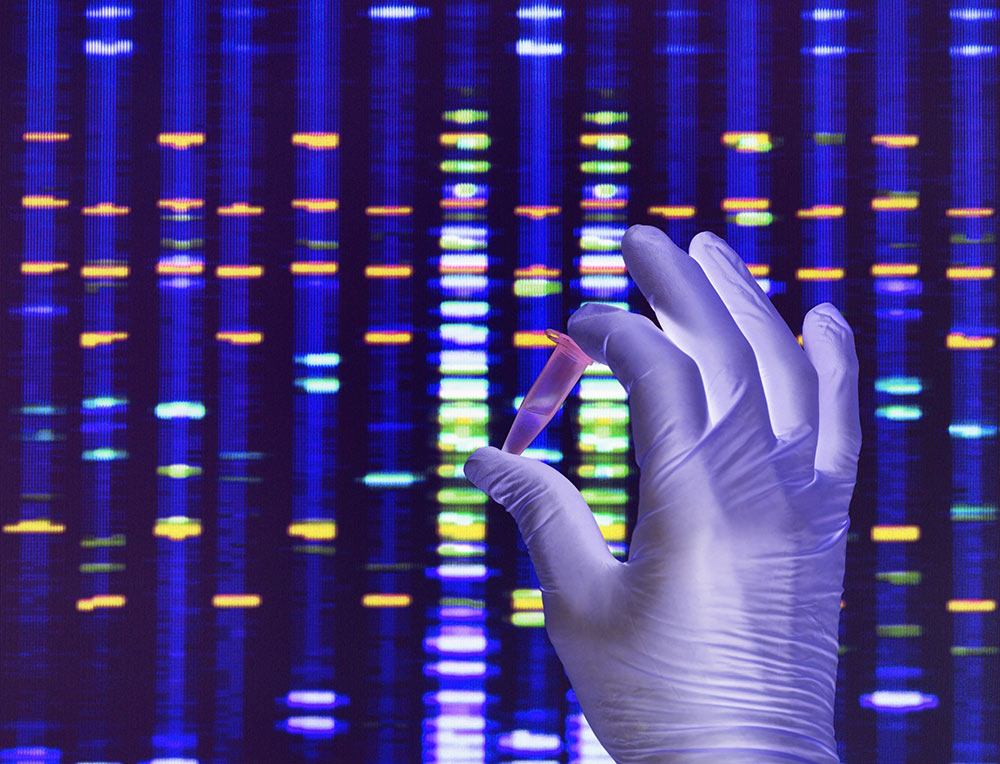
今天,人類醫學正在經歷一個世紀以來最根本性的轉變,其重要性可以與抗生素的時代相媲美。使用與人類、腫瘤、病毒等有關的遺傳信息,能夠提高醫療的精確度,讓我們有能力從過去的試錯法跳躍到新型醫療,利用分子信息為所有人提供更有效、更精準的醫療。
新冠疫情和令人震驚的疫苗研發速度證明了新時代醫療的無限可能。還有最近癌癥治療方面的改進。據IQVIA人類數據科學研究所(IQVIA Institute)表示,目前正在開發的超過90%的癌癥治療方法在某種程度上都是以分子遺傳信息作為方向。我們的技術正在快速打破基于癥狀的試錯醫學的局限,我們所愛的人也將因此擁有更長的壽命。
但基于遺傳學的醫療應用速度過于緩慢。這些問題在癌癥治療領域最為明顯。我們知道,早發現、早治療可以提高癌癥患者的存活率,但臨床治療準則和保險報銷卻偏向于晚期檢測和治療。比如結腸癌的發病率不斷升高,尤其是在年輕人當中。接近六分之一結腸癌患者有遺傳基因變異,導致其患結腸癌或其他癌癥的風險升高。但目前的檢測準則和實踐僅對病情最嚴重的患者以及存在癌癥家族遺傳史的家庭進行基因檢測。
如果將通過基因檢測確定高癌癥風險作為日常護理的標準,我們就能夠根據每個人患癌癥的風險提供預防和監控,對癌癥患者也可以盡早進行干預治療。所以為什么不通過常規基因檢測來提高治療效果呢?
不客氣地說,識別某種疾病患病風險較高的無癥狀人群,然后執行謹慎(且劃算的)篩查策略幫助他們保持健康,在這個過程中沒有人從中獲得報酬。我們的醫療體系注重的是對患者患病之后的治療,這些疾病通常存在多年沒有被檢出,也沒有引起懷疑。監管障礙和徹底崩潰的定價市場造成的意外后果,仍然在推動美國的智慧資本向高成本的(且有利可圖的)重病患者診斷和治療傾斜;但醫療系統對改善人類身體健康卻缺乏動力。很可惜,美國的醫療保健支付方似乎已經被這種方式束縛了手腳。進步的保險公司嘗試開展試點項目,雇主偶爾也會盡量鼓勵員工預防疾病以降低成本,但系統性變化依舊沒有出現。
有趣的是,一些最重要的創新反而是來自醫療行業以外的領域。我們看到人壽保險公司開始提供分子檢測,用于確定癌癥風險、治療和監控,并且已經初步產生回報。當人們注重保護自身健康的時候,他們就可以延長壽命,也就能夠更長時間地作為保險公司的客戶。
醫療保健行業不應該也不可以放棄其采用預防性醫療的道義責任。醫療保健系統應該為在常規預防性醫療中使用健康信息創造更多的便利,但首先要確保健康信息能夠作為付費項目。醫療保健一直是一個相當孤立的領域,但我們應該將其視為一個可以由醫療保險支付方和醫療保健系統合作創建的平臺。
首先是降低診斷和分子檢測的費用,并允許患者和臨床醫師獲取檢測信息和健康數據。在新冠疫情初期,我們見證了缺少檢測和信息基礎設施的后果。除了傳染病以外,我們對基因檢測同樣有很高的需求,只是這種需求并不明顯。醫療保健支付方應該發揮關鍵作用,重新考慮報銷預防性醫療的費用,而醫療保健行業必須用可靠的、能夠擴大規模的基因檢測來滿足需求。
基于檢測和信息基礎設施可以開展行業合作,增加基因檢測的應用。如果你有一種針對癌癥的靶向療法,它必須對這種生物標記物進行測試之后才能夠上市。但我們可以不斷增加可用基因組信息,直到基因檢測變成一種常規,足以形成良性循環:我們掌握的個人遺傳信息越多,生物科技和制藥行業的創新者就有越多的靶點能夠開發新治療方法,反過來可以刺激基因檢測的發展,讓更多的人能夠從靶向治療中受益。我們可以以此為基礎建立科學知識庫,確定在所有健康問題上對不同人群有效的治療方案。
毫無疑問,這一切說起來容易做起來難。但此次新冠疫情危機給我們帶來的一點啟示就是,當各方齊心協力合作解決醫療問題時,就能夠實現快速創新。面對緊急的疫情和新的傳染病,我們不能坐以待斃。我們需要吸取過去一年半的教訓,將它們擴展到新冠疫情以外的其他方面,讓全世界數十億人過上更健康的生活。(財富中文網)
本文作者肖恩·喬治是Invitae公司的聯合創始人及首席執行官。
翻譯:劉進龍
審校:汪皓
今天,人類醫學正在經歷一個世紀以來最根本性的轉變,其重要性可以與抗生素的時代相媲美。使用與人類、腫瘤、病毒等有關的遺傳信息,能夠提高醫療的精確度,讓我們有能力從過去的試錯法跳躍到新型醫療,利用分子信息為所有人提供更有效、更精準的醫療。
新冠疫情和令人震驚的疫苗研發速度證明了新時代醫療的無限可能。還有最近癌癥治療方面的改進。據IQVIA人類數據科學研究所(IQVIA Institute)表示,目前正在開發的超過90%的癌癥治療方法在某種程度上都是以分子遺傳信息作為方向。我們的技術正在快速打破基于癥狀的試錯醫學的局限,我們所愛的人也將因此擁有更長的壽命。
但基于遺傳學的醫療應用速度過于緩慢。這些問題在癌癥治療領域最為明顯。我們知道,早發現、早治療可以提高癌癥患者的存活率,但臨床治療準則和保險報銷卻偏向于晚期檢測和治療。比如結腸癌的發病率不斷升高,尤其是在年輕人當中。接近六分之一結腸癌患者有遺傳基因變異,導致其患結腸癌或其他癌癥的風險升高。但目前的檢測準則和實踐僅對病情最嚴重的患者以及存在癌癥家族遺傳史的家庭進行基因檢測。
如果將通過基因檢測確定高癌癥風險作為日常護理的標準,我們就能夠根據每個人患癌癥的風險提供預防和監控,對癌癥患者也可以盡早進行干預治療。所以為什么不通過常規基因檢測來提高治療效果呢?
不客氣地說,識別某種疾病患病風險較高的無癥狀人群,然后執行謹慎(且劃算的)篩查策略幫助他們保持健康,在這個過程中沒有人從中獲得報酬。我們的醫療體系注重的是對患者患病之后的治療,這些疾病通常存在多年沒有被檢出,也沒有引起懷疑。監管障礙和徹底崩潰的定價市場造成的意外后果,仍然在推動美國的智慧資本向高成本的(且有利可圖的)重病患者診斷和治療傾斜;但醫療系統對改善人類身體健康卻缺乏動力。很可惜,美國的醫療保健支付方似乎已經被這種方式束縛了手腳。進步的保險公司嘗試開展試點項目,雇主偶爾也會盡量鼓勵員工預防疾病以降低成本,但系統性變化依舊沒有出現。
有趣的是,一些最重要的創新反而是來自醫療行業以外的領域。我們看到人壽保險公司開始提供分子檢測,用于確定癌癥風險、治療和監控,并且已經初步產生回報。當人們注重保護自身健康的時候,他們就可以延長壽命,也就能夠更長時間地作為保險公司的客戶。
醫療保健行業不應該也不可以放棄其采用預防性醫療的道義責任。醫療保健系統應該為在常規預防性醫療中使用健康信息創造更多的便利,但首先要確保健康信息能夠作為付費項目。醫療保健一直是一個相當孤立的領域,但我們應該將其視為一個可以由醫療保險支付方和醫療保健系統合作創建的平臺。
首先是降低診斷和分子檢測的費用,并允許患者和臨床醫師獲取檢測信息和健康數據。在新冠疫情初期,我們見證了缺少檢測和信息基礎設施的后果。除了傳染病以外,我們對基因檢測同樣有很高的需求,只是這種需求并不明顯。醫療保健支付方應該發揮關鍵作用,重新考慮報銷預防性醫療的費用,而醫療保健行業必須用可靠的、能夠擴大規模的基因檢測來滿足需求。
基于檢測和信息基礎設施可以開展行業合作,增加基因檢測的應用。如果你有一種針對癌癥的靶向療法,它必須對這種生物標記物進行測試之后才能夠上市。但我們可以不斷增加可用基因組信息,直到基因檢測變成一種常規,足以形成良性循環:我們掌握的個人遺傳信息越多,生物科技和制藥行業的創新者就有越多的靶點能夠開發新治療方法,反過來可以刺激基因檢測的發展,讓更多的人能夠從靶向治療中受益。我們可以以此為基礎建立科學知識庫,確定在所有健康問題上對不同人群有效的治療方案。
毫無疑問,這一切說起來容易做起來難。但此次新冠疫情危機給我們帶來的一點啟示就是,當各方齊心協力合作解決醫療問題時,就能夠實現快速創新。面對緊急的疫情和新的傳染病,我們不能坐以待斃。我們需要吸取過去一年半的教訓,將它們擴展到新冠疫情以外的其他方面,讓全世界數十億人過上更健康的生活。(財富中文網)
本文作者肖恩·喬治是Invitae公司的聯合創始人及首席執行官。
翻譯:劉進龍
審校:汪皓
Today we’re in the midst of the most fundamental shift in medicine in a century, on par with the era of antibiotics. The use of genetic information—about people, about tumors, about viruses—is taking the guesswork out of medicine, giving us the power to leapfrog the trial-and-error of the past to a new model of medicine that leverages molecular information to deliver better, more precise health for each of us.
The COVID-19 pandemic and the astonishing speed with which vaccines were developed have shown what’s possible in this new era of medicine. So too have recent improvements in cancer care. More than 90% of the therapies in development for cancer are in some way directed by molecular genetic information, according to the IQVIA Institute. Our technology is rapidly escaping the limitations of symptom-based, trial-and-error medicine, and our loved ones are surviving longer as a result.
Yet the pace of embracing genetics-based health care has been excruciatingly slow. Nowhere are these shortcomings more evident than in cancer care. We know that cancer survival increases with early detection and treatment, and yet clinical care guidelines and reimbursement favor late-stage detection and treatment. A case in point is colorectal cancer, which has been on the rise, particularly at younger ages. Nearly one in six colorectal cancer patients has inherited gene variants that increased his or her risk of cancer, not just for colorectal cancer but for other cancers as well. And yet current testing guidelines and practice focus on genetic testing only for the sickest patients and for families with an obvious familial pattern of inherited cancer.
If genetic testing for elevated cancer risk were a standard part of everyday care, we could fashion appropriate prevention and surveillance matched to each individual’s risk for cancer, as well as intervene earlier if cancer develops. So why don’t we routinely test patients in order to better manage care?
Not to put too fine a point on it, but no one gets paid for identifying asymptomatic people who are at high risk for a disease and then implementing prudent (and cost-effective) screening strategies to help them thrive. Our system pays to treat patients after disease has run undetected and unchallenged, often for years. The unintended consequences of a patchwork of regulatory barriers combined with a completely broken pricing market continues to ratchet our country’s intellectual capital toward the costly (and lucrative) game of diagnosing and treating the sickest patients; there are few incentives for making people healthier. Sadly, U.S. payers seem trapped in this approach. Progressive insurers try pilot programs, employers occasionally try to incentivize prevention to bring down costs, but systemic change remains elusive.
Interestingly, some of the biggest innovations are coming from outside health care. We’re beginning to see life insurance companies provide molecular testing to determine risk for cancer, therapy, and monitoring, and they are witnessing early returns. People live longer—and remain customers longer—when they are protecting their health.
The health care sector of our economy should not and cannot abandon its moral imperative to adopt preventive medicine. Systems need to make it easier for health information to be incorporated into routine preventive care, and that begins by making sure it gets paid for. Health care is traditionally quite siloed, but we need to be thinking of it as a platform, one that payers and health care systems can collaborate to create.
The collaboration starts with making diagnostic and molecular tests affordable and the resulting information and health data accessible to patients and clinicians. Through the early days of the pandemic, we witnessed what happens when testing and information infrastructure is missing. The need is just as great outside infectious disease, it’s just not as visible. Payers have a vital role in rethinking reimbursement for preventive medicine, and industry must meet the need with reliable, scalable testing.
Industry partnerships can then be layered on that testing and informatics infrastructure to increase utilization. If you have a targeted therapy for cancer, you can’t bring it forward unless you have the testing for that biomarker. But we can keep expanding the menu of genomic information available until it becomes routine enough that genetics becomes a virtuous cycle: The more individual genetic information we have, the more targets the innovators in the biotech and pharmaceutical industries will have to drive the development of new therapies, which in turn spurs more genetic testing to find more individuals who could benefit from such targeted treatment. This allows us to build a scientific knowledge base of what works for whom, across all of health.
This is all, without a doubt, easier to describe than achieve. But if the pandemic crisis has shown us anything, it is the rapid innovation that results when all the parties involved in health care collaborate to solve a problem. A pandemic emergency and emerging infectious diseases are not situations we can afford to wait for. We need to take the lessons we’ve learned over the past year and a half and extrapolate them beyond COVID to deliver a lifetime of better health for billions of people around the globe.
Sean George is the cofounder and CEO of Invitae.






